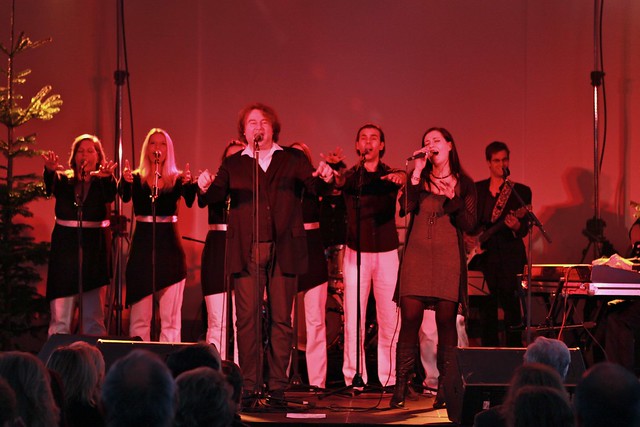 |
| Photo by Theater Purkersdorf |
Gospel music origin, roots, history goes back to Africa but most of the sound was developed on American soil, particularly in the southern area, during the 18th century at the height of the slavery era. Tribal African music dealt exclusively with the sacred and was used by tribesmen as a means to be in harmony with nature. When the American slavers brought Africans to American soil, a ban prohibiting their native music and the use of traditional African instruments was imposed on them.
This was done in order to further subjugate them and prevent them from communicating with one another. The enslaved Africans then turned to creating a new kind of music by using Christian subjects instead and fused their traditional African music styles with the Western style of harmony and musical instruments, thus began the music origin, roots, history of modern-day gospel music.
The roots first started to grow in the South where slavery flourished during the 1600s. To keep the enslaved Africans in check, the Africans were also compelled to attend their masters' worship services, which further reinforced the slavery doctrine. The church and religion became the slaves' sanctuary and acted as their guiding force in times of great adversity, even more so after their eventual emancipation. It wasn't long before their own brand of African-American culture and music started to thrive within the safe confines of the churches. The converted slaves started to adapt the normally sombre and sedated Methodist hymns, infusing it with their own native music. In a fact, a lot of the well-known present-day gospel song patterns, such as the popular call and response style and the use of complex percussion rhythms, are also key features of tribal African music.
Gospel music started to spread towards the North American territories during the late 1800s when slaves were allowed to publicly perform in large musical ensembles. The new breed of music was embraced by the all-white public, their interest obviously piqued by the new sound. Pretty soon the influence of gospel music started to trickle down not only to traditional religious music but also to popular American music.
Some of the most popular personalities in recent music history such as Elvis Presley, Sam Cooke, Mahalia Jackson, Aretha Franklin, and Jerry Lee Lewis among others have cited their own gospel music origin, roots, history back at their own churches as having a significant influence on them. Of the aforementioned names, only Mahalia Jackson-the undisputed first Queen of Gospel Music has the distinction of maintaining a steady career in gospel music. The others had also found crossover success in secular music, despite not completely severing their gospel music roots throughout their music career.
By Gary Harbin
Are you looking for the best Gospel music origin, roots, history? Visit http://www.garyharbin.com/ for the best music, concerts, VD's, books, and more!
Article Source: EzineArticles
|
